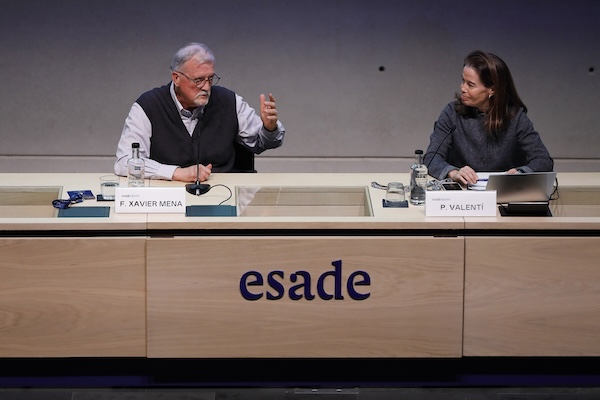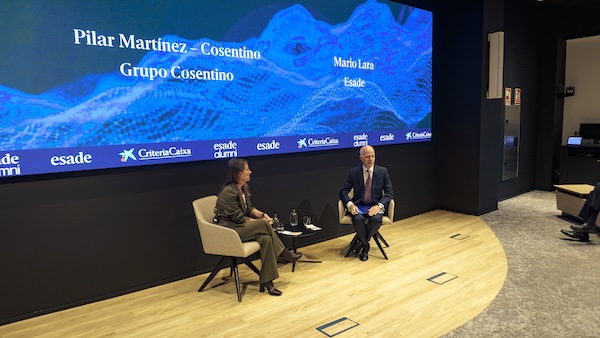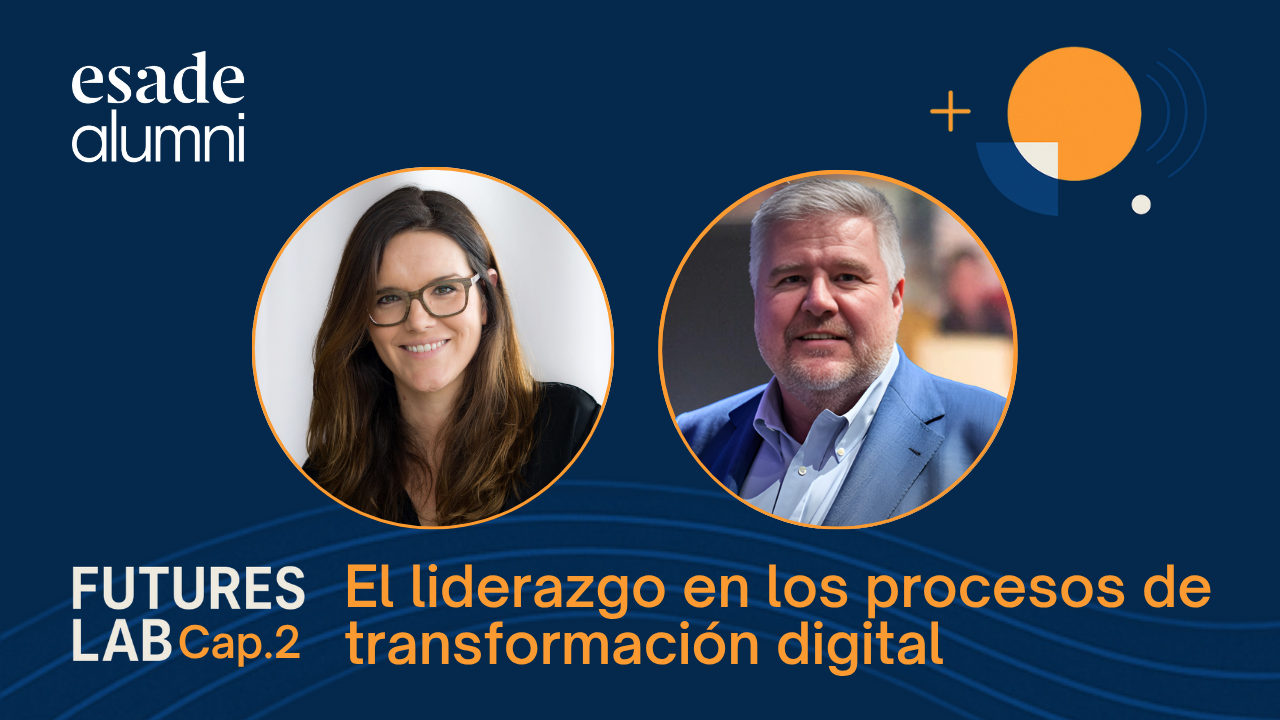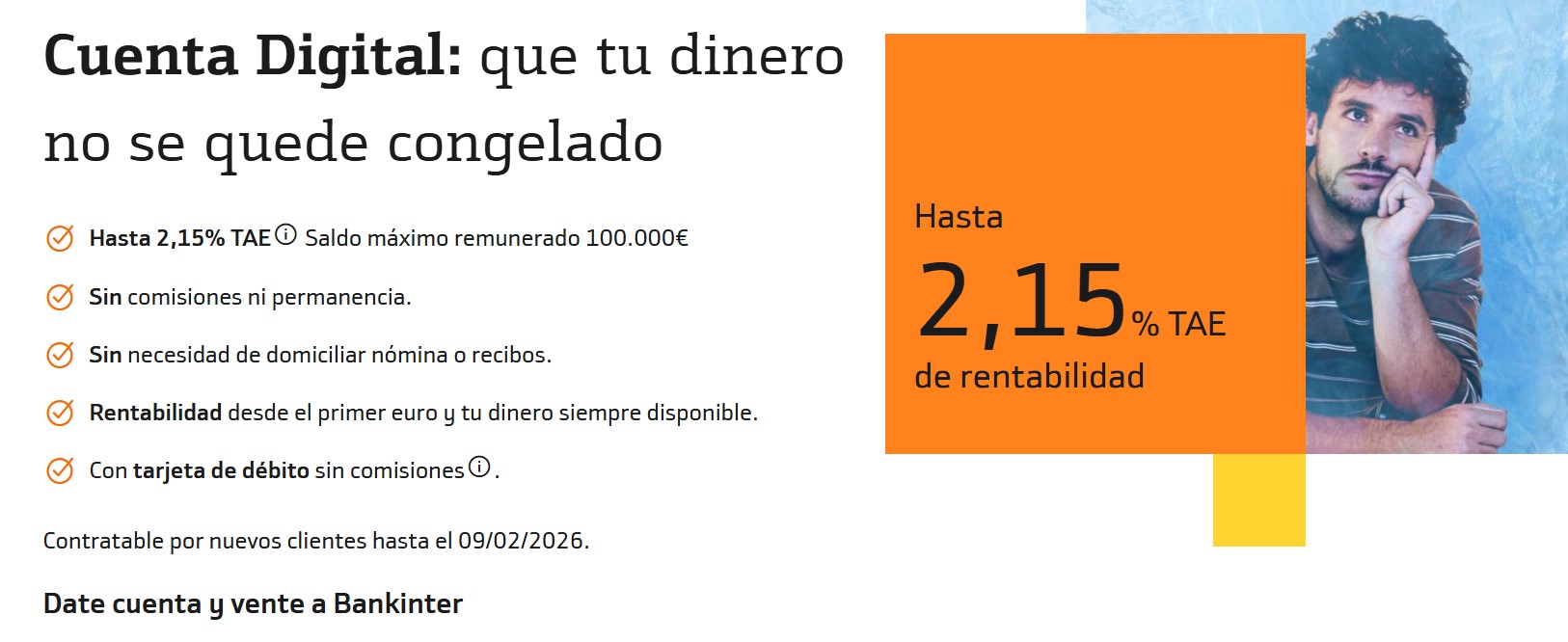The keynote speaker at the opening session of the 17th edition of Pro Bono Consultants shares his recipe for leading with purpose and confidence
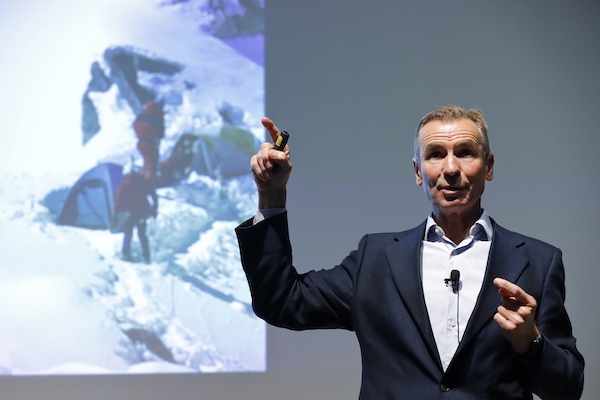
With a Bachelor in Business Studies and an MBA from Esade, Valentín Giró works to support leadership development in organisations. He has worked with Axialent for more than 15 years and has advised leaders and teams in leadership and cultural change programmes. He combines his professional activity with his passion for the mountains and applies this knowledge in his leadership programmes.
- What does “conscious leadership” mean to you?
A conscious leader knows himself in the physical, mental and spiritual dimensions, not necessarily in a religious sense but in the sense of connecting with his meaning and essence. It is someone who is authentic and inspirational. He is a good listener who supports and challenges those around him, so that they can become better.
Personally, I first came into contact with conscious leadership nearly 20 years ago thanks to Axialent founder Fred Kofman, from whom I learned that it is possible to humanise organisations. Over the past two decades, I have seen that the best organisations – the ones where people want to be – are those that put people first. For me, the path of conscious leadership has been – and is – a path of self-knowledge and service to others, and therefore, a path of personal fulfilment.
-What are the benefits of conscious leadership for teams? And for organisations?
In teams, conscious leaders nurture and look out for the common purpose: Why are we working together? What for? They are empathetic and they firmly believe in people, with all their strengths and weaknesses. They also know how to show their own vulnerability. They weave the “safety net” of trust that is essential to any team. They are visionary and ambitious: they aspire to “win the game”, because results matter. They focus on the process, accepting that they may also lose.
In organisations, conscious leaders set an example in order to build a culture that is based on values, connected to various stakeholders and bound by the shared responsibility to protect and regenerate the biosphere – our only life support. They are not naïve at all. On the contrary, they are courageous. We find them in small and medium-sized enterprises as well as in large corporations, showing that it is possible to deliver positive results for their stakeholders and for the planet. I recommend a book by Paul Polman, who was the CEO of Unilever for 10 years, entitled Net Positive: How Courageous Companies Thrive by Giving More Than They Take.
-Do you think that conscious leaders become so after working on themselves thoughtfully and deliberately? In other words, are conscious leaders born or made?
Conscious leadership begins within oneself, inside each person. It necessarily entails personal knowledge that seeks the essence, going beyond personality and ego. We can all walk this path, but there are no shortcuts: it takes motivation and perseverance. The conscious leaders I know walk this path passionately, but also effortfull
-Can anyone become a conscious leader or does it require certain basic human capacities or qualities?
Without a doubt, we all have this potential, because human beings have a strong and common need to search for meaning. This search is the driver of the development of consciousness. To realise this potential requires an introspective attitude that leads you to ask yourself, for example: Who am I? What is life? Is there a God? In the search for answers to these questions, everyone goes about it in their own way and follows their own path. It is in this process that the level of consciousness grows.
Throughout history, the human species has evolved through different stages of consciousness. Especially in the West, our current culture places great value on the power of the mind. We have come to believe that everything comes down to the mind and can be explained in this way. However, wisdom warns us that the mind circumscribes us to the ego and that we are more than just thinking minds. A conscious person is able to perceive his depth as a human being and his connection to the life that surrounds him. This is what enables him to see and act beyond his ego.
“A conscious person is able to perceive his depth as a human being and his connection to the life that surrounds him. This is what enables him to see and act beyond his ego”
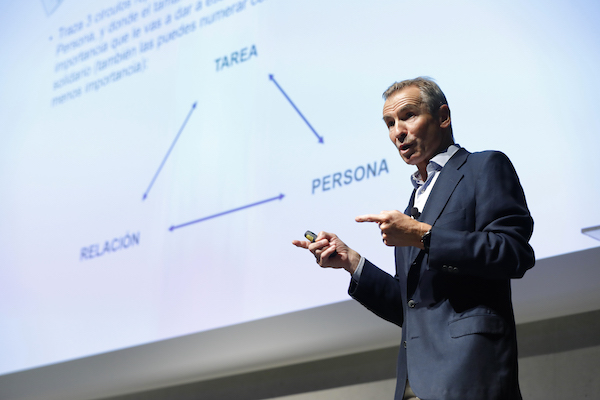
-Could you give us some tips on how to apply this concept in our professional environment?
As I said before, each person must build their own path. No path is better than any other; they are all valid. There are no magic recipes, either. No matter how much we read, it is a matter of experiencing this transformation – not so much of thinking about it with your mind. I can share some advice based on my own experience:
- Anchor yourself in your personal purpose. Who are you? Why are you here? What does it mean for me to do my best? How can I serve others?
- Listen and ask questions in order to understand better and keep learning. Above all, connect empathetically with others.
- View the world with curiosity and try to set aside the prejudices and beliefs that constrain you.
- Find spaces to flow and enjoy what you do, here and now – walking, reading, listening to music or meditating – as if time did not exist.
- Accept life as it is, with all its ups and downs. And, in times of crisis or difficulty, recognise your vulnerability. See yourself in all your humanity – this will help you connect with the humanity of the people around you.
-In your experience, is this a growing trend? Or is it something that is being talked about but not yet applied to a significant degree?
This is an exciting time. Many thinkers and scientists have pointed out that today we are facing a paradigm shift on different levels. In what I referred to earlier as stages in the evolution of consciousness, humankind is making great strides, contrary to what you might think from reading or listening to the news.
In these tumultuous times, there is a growing movement and interest in the development of consciousness. In my work with leaders and organisations, I am seeing more and more people asking questions and looking for their own answers, even if it means questioning the status quo and eschewing political correctness.
-What role do you think organisations and individuals need to play in order to have a positive impact on the future?
The ability to have an impact comes, first and foremost, from within. As Gandhi once said: “Be the change you want to see in the world.” And all change must be accompanied by a change in the level of consciousness. Organisations are people. The leaders who run them, in particular, have a huge responsibility to make a positive impact.
Today’s leaders who run companies with a conscience:
- Make purpose and values the central axis around which everything else revolves.
- Are not arrogant and recognise that they do not have all the answers.
- Connect and empathise with people.
- Are brave, courageous and willing to make risky decisions.
- Inspire others by setting an example, staying true to their purpose and values.
- Listen to their stakeholders and work closely with them.
The story of Yvon Chouinard, founder and owner of the outdoor clothing retailer Patagonia, is well known. His purpose is disruptive: “We’re in business to save our home planet.” A few months ago, the Chouinard family transferred ownership of Patagonia (valued at US$3 billion) to a trust created for this purpose and to a non-profit to preserve the company’s independence and ensure that all of its profits (US$100 million per year) go to protecting the planet. By way of explanation, Chouinard told his employees: “Earth is now our only shareholder.”
Fortunately, more and more conscious leaders like Chouinard are starting to appear in other sectors and industries. They are people who unite and mobilise their teams to transform the world and society for the better. And this is something that people everywhere are increasingly demanding.



